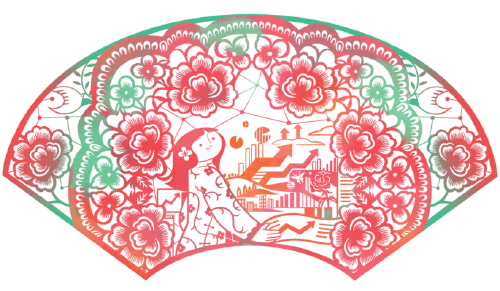Domestic demand needs to be expanded


By encouraging innovation and optimizing the income structure, private investment can be better guided to ensure high-quality growth
According to the Central Economic Work Conference in 2023, China's economy has shown signs of recovery, progress has been achieved in high-quality development, and important advancement has been made in the building of a modern industrial system.
However, some difficulties and challenges must be tackled to achieve further economic recovery. Those include a lack of effective demand, overcapacity in some industries, weak social expectations, hidden risks, bottlenecks in the domestic economic flow, and the increasingly complex, severe and uncertain external environment.
Among them, the crucial issue constraining economic growth is the insufficiency of effective demand, which is the result of several structural challenges. In China, the disposable income of residents takes up a relatively small share of national income, which leads to low consumer spending. Overcapacity in some industries restricts investment growth in manufacturing. Private investment struggles with manufacturing slowdown and infrastructure investment bottlenecks.
Even so, there are good reasons to be optimistic about the huge potential of realizing economic growth by boosting domestic demand: Residents' consumption structure is yet to be upgraded. Urbanization needs to be further increased and improved. High savings rate serves as the foundation for effective investment. High-level financial opening-up can guide foreign capital to provide support for domestic capital. A potential second wave of demographic dividends is expected to pick up the baton from the first one to drive sustainable economic growth.
To further expand domestic demand and stimulate growth potential, the macroeconomic strategy can be optimized in the following three aspects:
First, by expanding fiscal deficits and reforming the money supply mechanism, regulation can be optimized to facilitate domestic economic flow.
As China builds the new dual-circulation development paradigm, declines in external demand can be compensated by domestic demand. This entails a change in China's production model, which should shift from industrial goods for exports to products and services for the domestic market.
Fiscal and monetary policy should be adjusted and reformed accordingly. As an important policy to facilitate the domestic economic flow, the domestic fiscal deficit can be increased to gradually replace net exports. Government bonds should be used as an alternative to funds outstanding for foreign exchange. New channels for issuing currency should be established.
According to the balance of payments theory, under the condition of zero external surplus, the government's fiscal deficit equals the private sector's surplus, which means that only when the government experiences a deficit, can the domestic private sector achieve a net surplus. In practice, the leverage ratio of China's central government is far lower than that of other major economies, providing sufficient policy space for government deficit financing.
The central bank should also reform the mechanism for issuing basic currency, in order to promote the substitution of sovereign credit (government bonds) for foreign exchange reserves as the main reserve asset.
With damaged balance sheets from sectors including residents, enterprises and local governments, expanding the balance sheet of the central government to offset the contraction of the private sector's is an effective and feasible counter-cyclical adjustment.
Second, sustainable growth in residents' consumption can be promoted by transferring part of the income to residents.
First of all, the disposable income of residents, including urban and rural residents as well as individual business owners, should be effectively raised. This can be done by gradually increasing residents' share in the initial distribution of national income through raising wages or taking other measures. Thereafter, the residents' regular transfer income, including pensions, social relief funds, medical reimbursement and other non-taxable income should also be increased.
The government should alleviate the debt burden on residents by lifting income and reducing debt. It is advised to explore the feasibility of optimized personal income tax, spending vouchers and negative personal income tax, which provides tax subsidies for low-income groups.
Greater efforts should be made in social insurance, transfer payment and structural tax reductions to lift income for low-income groups and increase consumption willingness in the short term.
Moreover, the government should accelerate the improvement of the local housing support system to reduce residents' housing costs.
Third, private investment can be stabilized by stabilizing expectations, reducing costs and promoting innovation.
Rule of law in economic governance should be advanced to establish stable market expectations. Private enterprises should enjoy equal treatment as State-owned ones, both in terms of legislation and law enforcement, with their property rights protected, channels for raising requests improved, and their rights and interests safeguarded, so as to create a stable and favorable investment environment. To maintain and promote fair market competition, both explicit and implicit barriers in approval and licensing, market access, bidding and resource acquisition should be removed.
Moreover, operating costs for private enterprises should be reduced through tax and fee reduction and by supporting them to improve profitability. Following the principle of stabilizing the macro tax burden, the needs of assisting businesses, ensuring fiscal sustainability and optimizing the tax structure should be coordinated, and policies such as tax reduction, fee reduction, tax refund and tax deferral should be further implemented and improved. Apart from balancing credit support and financing costs for private and State-owned enterprises, the government should further improve policy guarantee to support companies.
By encouraging innovation and optimizing the income structure, private investment can be better guided to ensure high-quality and sustainable growth. This can be achieved by focusing on national strategic priorities such as next-generation information technology, high-end equipment manufacturing, new materials and biomedicine. In addition, more support should be given to private investment in green development, the service-oriented manufacturing and productive service industries.
The author is director and research fellow at the Monetary Theory and Monetary Policy Research Office at the Institute of Finance and Banking at the Chinese Academy of Social Sciences and a senior research fellow at the National Institution for Finance & Development. The author contributed this article to China Watch, a think tank powered by China Daily.
The views do not necessarily reflect those of China Daily.
Contact the editor at editor@chinawatch.cn.


































